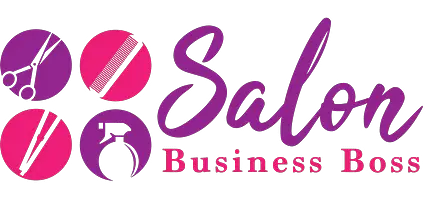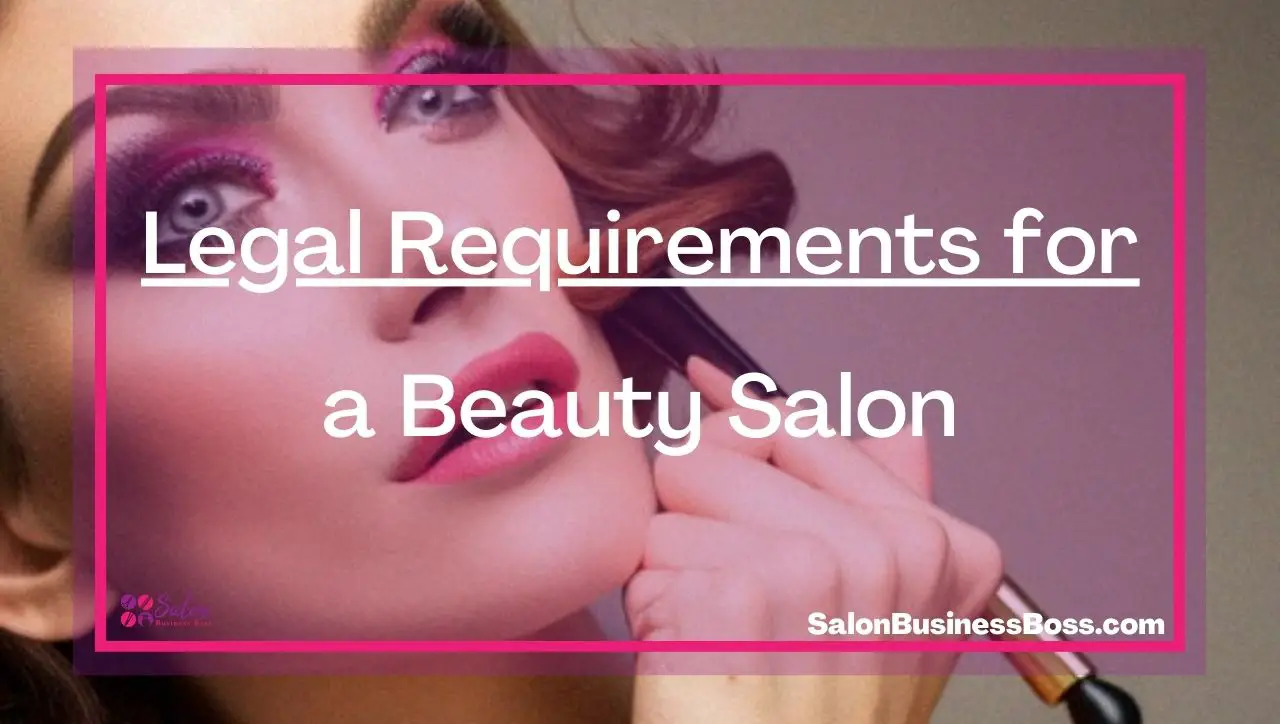Running a beauty salon or any other business has several legal requirements. Depending on the type of business, and its location, the requirements can vary. Some municipalities and states can have different requirements than others. As a business owner, it is your job to follow these regulations. Ignorance is not accepted as an excuse and fines for violating these requirements can be costly. It can even cost you your business. Luckily, these requirements are public records and can be searched out online. Though there are variances, this article will help you get a general idea of the legal obligations you have and you can use your city’s information to fill in the gaps.
The legal requirements for a beauty salon in the USA include, Cosmetology License, Insurance, operating permits, following sanitation rules, and legal obligations to employees and customers. Keep in mind, each state has its own requirements and need to check that your salon is following all the legal requirements for your area.
Cosmetology License
Your first order of business as someone who wants to own a salon is to get a cosmetology license and make sure it is prominently displayed in your shop for customers and inspectors. This can take months of training. Beauty school can also be expensive but there are other paths to getting your license. Some people who want to be cosmetologists may try to apprentice at another shop and learn what they need to know for an exam while getting work experience and getting paid. However, finding a person who is willing to take on an apprentice isn’t always easy, and not every salon is willing to take on apprentices when they can have someone who is fully trained.
Getting a cosmetology and salon license can be expensive. In some cases, it can cost around $12,000. If you’re just starting, I recommend focusing on getting your license rather than trying to start a salon. If you already have a cosmetology license, the cost for a salon license is substantially lower.
Now I understand if you think all this license stuff is annoying. A lot of people do. However, if your state requires a license, you have to get one. Most states and municipalities review license applicants for previous violations. If you get caught running a salon without a license, you will face a lot of problems. In addition to steep fines, any attempt you make to get your license after you get caught trying to run a business without a license will probably end poorly. Furthermore, you will likely need investors and/or business loans either from banks or the Small Business Administration. If you want to get investors and loans from bank officers, you will need to show them that you are doing your due diligence and following the law. No one is going to invest money into a business venture that will likely get shut down by law enforcement.
Speaking of due diligence, you also need to vet your employees and make sure they have the certifications they need to have or are following the laws regarding apprenticeships. You can’t hire people without certifications and then plead ignorance if something bad happens. Making sure all your employees have their certifications can protect them and you in the event you have legal trouble.
Learn about opening a salon without a cosmetology license.
Salon Insurance
Speaking of protection, you are legally required to have insurance. There are multiple types of insurance you need to have depending on the state.
First, you will need to have worker’s compensation insurance. The salon business can result in a rather surprising amount of injuries. Injuries can range from repetitive motion injuries like carpal tunnel syndrome to injuries from slipping and falling. Worker’s compensation insurance is required to deal with these scenarios.
You’ll also need general and professional liability insurance. While people aren’t as litigious as sensationalist media outlets like to claim, you can still sue anyone for anything. Even if the case is baseless, a lawsuit can still be costly. Sometimes the case can have merit, too. As a salon owner, you might have to deal with lawsuits related to injuries or someone unintentionally giving out bad advice regarding their hair and skincare and people might sue them over it. Having liability insurance will help protect you.and you should make sure that your hairstylists also have liability insurance if they’re renting booths.
Commercial property insurance is the next type of insurance that you will need. Sometimes, bad things happen on your property. Robberies, equipment being damaged by clumsiness, or your standard unforeseen disaster are all things that can happen to your business. With technology like POS systems making things more expensive, having commercial property insurance is a good idea. If something happens that takes your property out of commission, property insurance will help you as your property is getting repaired.
It can be hard to figure out which insurance companies to go with. You’re dealing with multiplre types of insurance. Luckily, many companies offer an all-in-one policy. This can save you money but be sure to read your policies carefully before signing anything. Because the rates can vary widely, I advise you to consult your local insurance companies.
Permits and State and Federal Licenses
Depending on where you’re operating, there are several permits and licenses you will need to get before you open your salon. For starters, you’ll need to get a business permit. Just like it says, it’s a permit to do business in the particular area you’re working in.
If you are selling products over the counter (which you should since it’s highly profitable), you may need a retail seller’s permit. It has different names depending on the state but they serve the same function: It helps your state collect things like sales taxes. If you have employees, you will also need a federal employer identification number (EIN). If your county collects sales taxes, you may need a permit from them too.
Cities require you to have a certificate of occupation. You have to tell the city what you’re using the property for and you have to be sure that your business is compliant with all building codes.
On the subject of building codes, you will need to have building permits if you are doing any significant renovations on the inside or outside of your building. Building and fire inspections will need to be done. Failing to do any of this will result in major legal consequences. Though this is not an easy process, forming functioning relationships with the people at your city hall will help this process go more smoothly.
Sanitation Rules
A major legal obligation that salons have is to run a sanitary place of work. Much of this is common sense. Your team must wash their hands with soap and water frequently. You and your stylists have to keep their tools clean. Brushes and combs need to be stored in a disinfectant solution. Razors need to be changed and cleaned frequently. Hair should be swept up and disposed of as soon as possible. This is not only a matter of cleanliness but of safety. Hair can be slippery and an unclean workstation can injure customers and employees.
Plus, if a customer gets an infection from a poorly sanitized tool, you and your employees can be held liable. Worst of all, if an inspector sees that your salon is unsanitary, your salon may be shut down and you may face steep fines. Even if you manage to get the problems resolved, your reputation will be harmed. Being known as the salon that got someone infected is not something you want. As a small business owner, you trade on your reputation so you have to be proactive when it comes to cleanliness.
Legal Obligations to Employees and Customers
In addition to sanitation, there are other legal obligations to keep your workplace safe. You must store your flammable chemicals, (such as aerosols) in cool, dry places. You must also try to give your customers the best advice that you can. This may include telling them to seek a dermatologist for problems that salons can’t fix. As a business owner, you must make sure your building is safe. This includes making sure all your wiring is working and all your equipment is functional. Because you are dealing with hazardous chemicals, you need to make sure that your building is well ventilated so people don’t get sick from the fumes. You’ll also need a handicap-accessible bathroom for customers.
For your employees, you are obligated to uphold the terms of your agreement. Following labor laws is another thing you must do. You have to do things like pay your workers on time and make sure your employees are aware of their rights. The Department of Labor requires you to print notices explaining their rights. These can be printed for free.
Related Questions

1. Should I buy/rent an old building or a new building?
New buildings tend to have fewer problems and you won’t have to do as much renovating. However, these buildings are often more expensive. Older buildings, while often less expensive (unless they’re in a historic area) often have more problems more frequently. Those expenses can add up. Plus, there can be accessibility issues.
2. Do I need different licenses to do different things?
Yes. If you’re just cutting hair, you’ll probably be fine with only a barber’s license. However, if you want to do more, you would need an additional license. A cosmetology license is the most comprehensive, covering hair, skin, and nails.
Looking to start your own Salon? Get the documents you need to get organized and funded here.
Please note: This blog post is for educational purposes only and does not constitute legal advice. Please consult a legal expert to address your specific needs.

About the author. Entrepreneur and Salon Business Fan.
Hi! I am Shawn and I am a happy individual who happens to be an entrepreneur. I have owned several types of businesses in my life from a coffee shop to an import and export business to an online review business plus a few more and now I create online salon business resources for those interested in starting new ventures. It’s demanding work but I love it. I do it for those passionate about their business and their goals. That’s why when I meet a salon business owner, I see myself. I know how hard the struggle is to retain clients, find good employees and keep the business growing all while trying to stay competitive.
That’s why I created Salon Business Boss: I want to help salon business owners like you build a thriving business that brings you endless joy and supports your ideal lifestyle.

